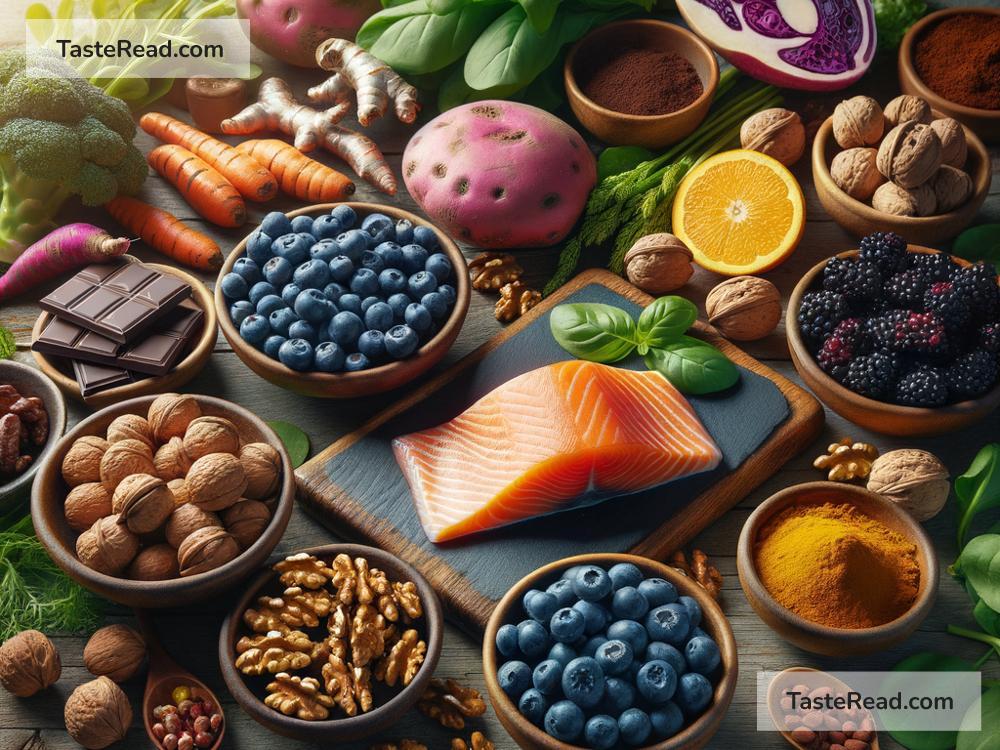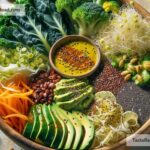Healing Through Food: What to Eat to Reduce Trauma Symptoms
Trauma is a heavy burden that can affect your mind, body, and heart. Whether it stems from a difficult event, prolonged stress, or loss, trauma can make life feel overwhelming. While therapy, support groups, and self-care practices are critical parts of healing, did you know that the food you eat can also play a role in reducing trauma symptoms?
Yes, your daily meals can help calm your brain, ease your body, and build strength during emotional recovery. Eating the right foods supports your nervous system, balances your mood, and soothes inflammation in your body. Let’s explore simple, healthy foods that help you heal from the inside out.
How Does Food Impact Trauma Recovery?
When you’re experiencing trauma symptoms—like anxiety, sleeplessness, irritability, or exhaustion—your body is under stress. Trauma can cause your brain’s stress-response system to stay “on,” making it harder to focus, process emotions, or feel calm. Many people also experience physical symptoms like digestive issues, muscle tension, headaches, or a weakened immune system.
The good news is that what you eat can actively support your recovery. Nutrient-rich foods boost brain function, regulate stress hormones, and reduce inflammation in your body. By choosing healing foods, you give your body and mind the fuel they need to feel stronger and more balanced.
1. Omega-3 Foods: Brain Boosters
Your brain relies on healthy fats to function properly during stressful times. Omega-3 fatty acids, found in foods like fatty fish or seeds, can reduce inflammation in your brain and ease anxiety, depression, and mood swings.
What to eat:
– Salmon, mackerel, and sardines
– Walnuts
– Chia seeds and flaxseeds
– Fish oil supplements (if recommended by a doctor)
2. Dark Leafy Greens: Nature’s Calming Food
Dark leafy greens are some of the healthiest foods you can eat, especially for trauma recovery. Packed with vitamins, minerals, and antioxidants, these greens reduce oxidative stress in the body and help your brain stay focused and calm.
What to eat:
– Spinach
– Kale
– Swiss chard
– Collard greens
You can toss them into a salad, blend them into smoothies, or sauté them for a quick side dish.
3. Whole Grains: Energy Stabilizers
When your body is recovering from trauma, your energy levels can go up and down. Whole grains provide fiber and slow-digesting carbs that stabilize your energy and mood throughout the day. They also help regulate serotonin, a “feel-good” hormone.
What to eat:
– Brown rice
– Quinoa
– Oats
– Whole grain bread
Switch out refined carbs like white bread or sugary snacks for whole grains—they’ll keep you full and calm for longer.
4. Probiotic Foods: Gut Helpers
Did you know your gut health and brain health are connected? When trauma affects your mood, calming your gut with healthy bacteria can make a difference. Probiotic-rich foods support digestion, boost immunity, and reduce inflammation.
What to eat:
– Yogurt (choose plain, unsweetened varieties)
– Kefir (a yogurt-like drink)
– Sauerkraut or kimchi
– Miso soup
5. Magnesium-Rich Foods: Stress Relief
Magnesium is a mineral that helps your muscles relax and calms your nervous system. Many people don’t get enough magnesium in their diets, but it can be incredibly helpful during times of stress.
What to eat:
– Almonds and cashews
– Pumpkin seeds
– Avocados
– Bananas
Snack on nuts and seeds, or make a smoothie with avocado and banana for a stress-busting treat.
6. Foods High in Vitamin C: Immune Boosters
Trauma can weaken your immune system over time, leaving you more vulnerable to illness. Vitamin C is a powerful antioxidant that strengthens your immune system and reduces inflammation, making it a great addition to your recovery diet.
What to eat:
– Strawberries
– Oranges, lemon, and grapefruit
– Bell peppers
– Broccoli
7. Herbal Teas: Natural Soothers
Sometimes, the simplest solutions have the greatest impact. Herbal teas like chamomile and peppermint are calming and hydrating, helping your stress levels and digestion while encouraging rest.
What to drink:
– Chamomile tea for relaxation
– Peppermint tea for digestion and stress relief
– Green tea for a gentle mental boost
8. Stay Hydrated: Let Water Heal
This may sound obvious, but it’s worth repeating—water matters! Drinking enough water is essential for flushing out toxins, reducing brain fog, and easing headaches caused by stress. Sometimes, symptoms like fatigue or anxiety improve simply by staying hydrated.
Balanced Meals Begin with Small Steps
Healing through food doesn’t mean you need to overhaul your diet completely overnight. Small changes make a big difference—add a new veggie to your dinner, swap sugary snacks for nuts, or sip herbal tea in the evening instead of caffeine. The key is consistency and kindness to yourself.
Remember, food is just one tool in trauma recovery. Pair a nourishing diet with additional resources like therapy, movement, and support from friends or loved ones. Over time, you’ll notice your body and mind feeling stronger and calmer.
Trauma takes time to heal, but taking small, healing actions (like adding nutrient-rich foods to your plate) is a powerful way to start. By treating your body gently and giving it the fuel it needs, you’re already on the path to recovery. Eat well, heal well, and take care of yourself—you deserve it.


